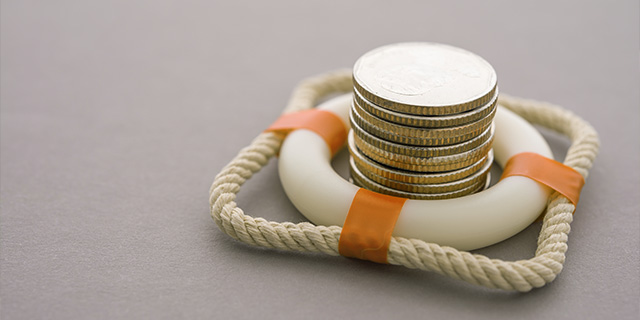From small vehicle repairs to missed closing costs on my first home purchase, an emergency fund has completely transformed how I look at money.
According to a 2019 article published by the Chartered Professional Accounts Canada (CPA), one in every three Canadians lives paycheck to paycheck. This means that if one of these individuals were to lose their job or face an unexpected financial obligation, they would have no funds left over to cover their monthly expenses.
That used to be me. When it comes to money, stress is a side effect of being unprepared and without control of your financial future. It's a scary feeling to have no backup plan in place when an emergency happens.
The day I paid off my debt, I transferred my first $20 into a high-interest savings account that I quickly nicknamed "My emergency fund." Since then, I've felt more at ease with my financial situation than ever. If it weren't for this emergency fund, I could have easily derailed many of my personal financial goals.
Thanks to a hefty high-interest savings account, I've been able to protect my finances when unexpected expenses popped up. So, what exactly were those emergency expenses, and how did my emergency fund provide support?
1. My first ever car accident
After a fun night out with my family, we got into our separate vehicles to head home. The roads were slick, and I wasn't expecting a sudden stop. Before I knew it, I had rear-ended my soon to be sister-in-law and let me tell you, the damages were hard to ignore.
A busted tail-light and bumper meant a substantial bill that would be too deep for my pockets if I hadn't saved an emergency fund. Rather than go through insurance and have increased rates, I opted to pay for the expenses myself, because I could. The one-time payment over a permanent monthly increase saved my future budgets from extra costs that might tip me over the edge.
2. Surprise! More closing costs
This past summer, my husband and I bought our first home. What made our experience unique was that we bought our house sight unseen and in a different city. Some might call this a risky move, but we ended up lucking out with the home of our dreams. However, in addition to the many costs that we had to pay beyond just a lofty down payment, we also had additional expenses that most first-time buyers don't have to consider.
Because we bought a house in a city seven hours away, we required a second lawyer to help us with the documents. Although it only cost us an additional $500, that was still a significant amount after spending nearly $60,000 to buy a new home just a few days earlier. Thankfully, our emergency fund pulled us through yet again.
3. Our first repair as homeowners
As a first-time homebuyer, you get used to people reminding you that owning comes with a lot of additional financial responsibility. What you may also quickly realize is that your house doesn't care that you just moved in. Only three short weeks after taking possession of our new home, our top of the line stove decided to break down, leaving us unable to cook meals in the oven. After buying some small parts off eBay to see if we could repair the stove our own, we realized it was going to require a professional.
We had to dip into our emergency fund yet again to cover the $500 expense that came after an already expensive few months. Without our emergency fund, we might not have had enough money left over for our monthly retirement savings contribution, but luckily, we were able to keep our savings goal on track.
4. Tax return, who?
After taking a year off from work for maternity leave, I expected that I would get a tax return after sending all my paperwork to my accountant. The joke was on me. It turns out, I owed money and quite a bit at that.
The four-figure number came as a surprise – and not one of the good ones. With less income than usual, I wasn't able to pull money out of my checking account to cover this unexpected expense, so it was time to turn to the emergency fund again. Tax season was by far, one of the most crucial saves provided by our emergency fund.
There is nothing worse than having to go into debt to cover a surprise expense that is entirely out of your control. An emergency fund can create the financial stability most Canadians need to help manage their finances. All it takes is opening a high-interest savings account, making a small automatic transfer each week, and using it for what it's there for – emergencies.





 Saving strategies
Saving strategies
